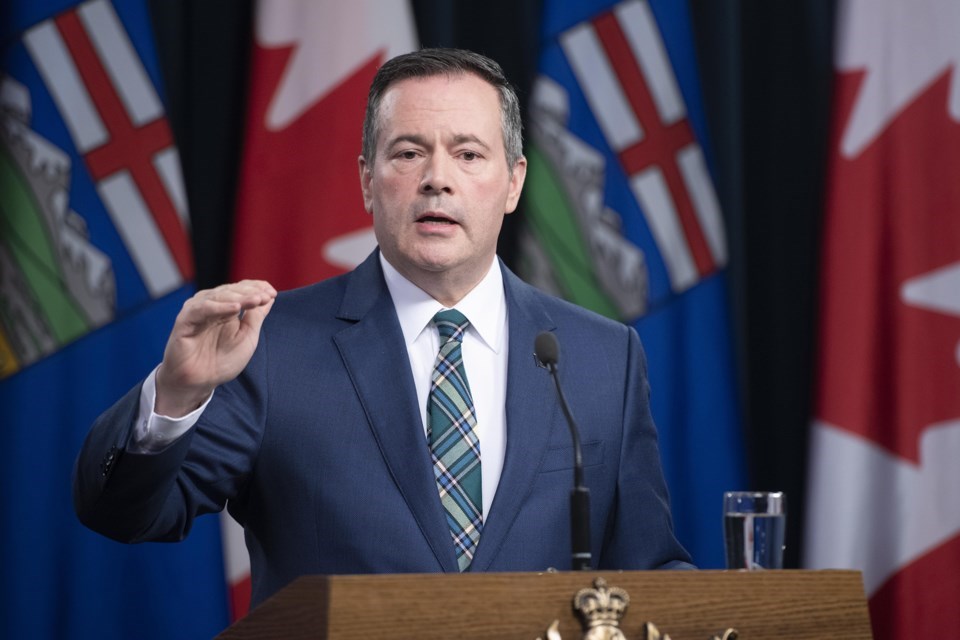The Alberta government’s decision to end the Restrictions Exemption Program (REP) effective Wednesday is due to the proof of COVID-19 vaccination is no longer needed and has nothing to do with anti-mandate protests now underway in the province, said Premier Jason Kenney.
Critics are calling the ending of the program a political move not based on medical evidence.
Speaking at a press conference on Tuesday, Feb. 8 Kenney outlined a three-stage plan, including the possible ending of indoor masking requirements within three-weeks.
Kenney said the REP has outlived its usefulness.
“The program is no longer serving a useful and compelling purpose,” said Kenney. “I could not stand in front of Albertans tonight and justify a continuation of a program that has done its job.
“If what we are doing here is somehow a response to protest, then why have [other jurisdictions} done the same thing? None of that has anything to do with a few trucks parked at the Coutts’ border crossing. All of it has to do with the fact that the disease is changing and so the approach that we take should change as well.
“It is time to shift to a balanced approach where we are able to live with COVID-19 and return to normal.”
Under the REP, residents had been required to produce a government issued QR code to access businesses and other public places taking part in the program. It was put in place to help stem the spread of COVID-19.
Under Stage 1 and effective Feb. 9, the REP ends, restrictions on sale of food and beverages and consumption while seated in audience settings are removed while restrictions on closing times, alcohol service, table capacity in restaurants and interactive activities will remain in place.
For all businesses, venues and facilities, capacity limits are removed, except for facilities with capacity of 500 to 1,000, which will be limited to 500, and facilities with capacity of 1,000-plus, which will be limited to 50 per cent.
As well, effective Feb. 14 masking requirements for children and youth 12 and under in indoor places will be removed, as will all masking for children and youth in schools for all ages.
Stage 2 will take effect on March 1 if hospitalizations continue to trend downward. Any remaining provincial school requirements, including cohorting, will be removed, screening prior to youth activities will no longer be required, capacity limits will be lifted for all venues, limits on social gatherings will be removed, provincial mask mandates will be removed, and mandatory work from home requirements removed.
Stage 3 will take effect on a date to be determined as long as hospitalizations continue to trend downward and will see COVID-19-specific measures in continuing care be removed and mandatory isolation become a recommendation only.
Alberta Health Minister Jason Copping says the three-stage plan is a “careful and prudent” measure.
The official Opposition calls the removal of the REP a political move.
“Jason Kenney is gambling with Albertan’s lives,” said health critic David Shepherd. “It’s been 11 days since the border crossing at Coutts has been illegally blocked by protesters demanding the removal of vaccine mandates. {Kenney] has clearly altered and accelerated his timeline due to the demands of this illegal blockade.”
The provincial government offered no data from public health experts to support the decision to remove REP, he said.
Dr. Deena Hinshaw, Alberta’s chief medical officer of health, said there were 129 COVID patients in Alberta intensive care units on Feb. 8 and 13 more deaths from COVID had been recorded in the previous 24 hours.



